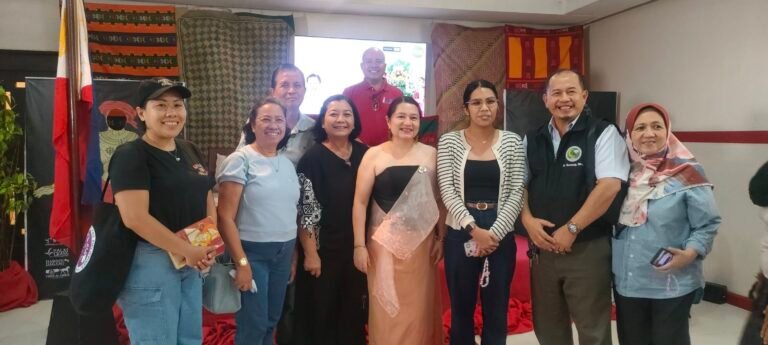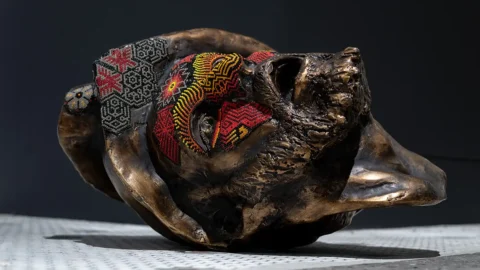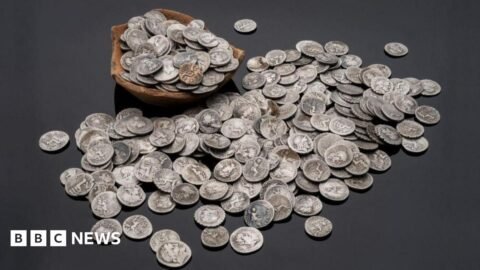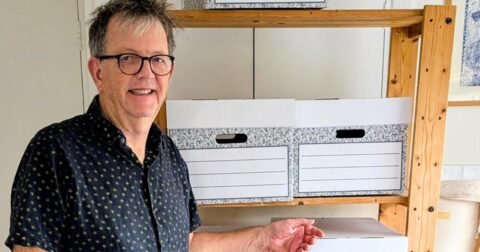A good government sees heritage conservation as a must.
Good governance takes heritage preservation as a fundamental responsibility, not merely an option.
Safeguarding cultural and natural heritage fosters a sense of collective identity, supports tourism, promotes a cohesive social environment, and drives further development of economic opportunities.
When Cebu City voted for a new mayor, in the person of Engr. Nestor Archival, a legislator for nearly two decades, around 80 cultural champions representing over 50 community organizations gathered for a forum to shape the city’s heritage agenda.
Cebu City’s cultural champions gathered on June 14, 2025 for the “Bililhong Bahandi: Conversation with Mayor-elect Nestor Archival on Cebu City’s Natural and Cultural Heritage.”
The gathering is deemed a landmark forum that brought together artists, educators, farm advocates, performers, historians, tour guides, vendors, spiritual leaders, among others, united by a shared mission which is to shape the city’s cultural and environmental future.
On behalf of Mayor Archival, his niece, Councilor Nice Archival, conveyed his message of commitment to preserving Cebu City’s cultural, natural, and historical identity.
“Heritage is not just in museums,” Councilor Archival said.
“It should live and breathe with us today – on our streets, in our food, our language, and the way we teach our children,” she added.
The forum was held at Palm Grass The Cebu Heritage Hotel in General Junquera Street, Cebu City, and co-organized by Tres de Abril Foundation, Inc. and the Rebranding Junquera Program.
VOICES FROM THE CULTURAL FRONTLINES
Each organization has brought the following agenda to the table, and hopes the new leadership will give attention to these areas of concern:
FOR EDUCATION AND CURRICULUM
- Department of Education – Cebu City (represented by Superintendent Nimfa Bongo) expresses intent to deepen history instruction with localized content, highlights efforts to integrate Cebuano heritage and identity into the curriculum, requests local government unit support for heritage books and learning materials;
- University of the Philippines Cebu (Vice Chancellor Palmy Tudtud) invites city leaders to visit UP Cebu’s heritage programs, highlights cultural mapping, crafts, and heritage-based innovation; and notes their main building is a declared heritage site;
- University of Cebu Performing Arts Development (Bryan Derek Salazar) promotes folklore-based theater and education through Cebuano-rooted productions;
FOR HERITAGE SITES, HISTORY AND ARCHITECTURE
- Archdiocesan Commission for the Cultural Heritage of the Church (Architect Melva Rodriguez-Java) urges protection of sacred church architecture and religious heritage sites across the city, calls for the protection of the Aduana (National Museum of the Philippines-Cebu) and its buffer zone from encroaching construction, advocates keeping the foreshore area public and free from privatization or commercial development, criticizes unregulated developments near heritage zones due to lack of permits and proper planning, and supports the formal declaration of Carbon Market as a heritage zone, citing its cultural and historical significance;
- Carbonhanong Alyansa (Anna Marie Ariosa) advocates for Carbon Market’s heritage zone designation, highlights the intangible heritage of vendors and family enterprises;
- Knights of Rizal – Cebu City Chapter (Ahmed Cuizon) campaigns to restore historic place names like Plaza Rizal, emphasizes civic memory and historical identity;
- Ramon Aboitiz Foundation, Inc. (RAFI), Casa Gorordo, Kabilin Center (Desiree Gestiala) frames museums as living civic spaces, and promotes culture-based education and public participation;
FOR ARTS, LITERATURE AND PERFORMANCE
- Cebu Popular Music Festival (CJ Seville), highlights its legacy in Cebuano-language songwriting, calls for Local Government Unit (LGU) support for contests, recordings, and outreach;
- Teatro de San Pedro Calungsod (Msgr. Ting Angcajas) shares work in religious and historical theater, emphasizes Cebu’s tradition of liturgical performance;
- Cebu Artists, Inc. (Paul Llideau) offers to collaborate on heritage and urban planning, and commits to using visual art to preserve Cebuano identity;
- Concerned Artists of the Philippines – Cebu (Vincent Pepito) advocates for artists’ rights and cultural equity, supports Carbon Market as a heritage zone;
- ANDRES Sugbo (Luigi Gala) frames art as a tool for social transformation, and calls for investment in civic and protest art spaces;
- Women in Literary Arts Cebu (WILA, VP Malou Alorro) advocates for Cebuano literary grants and youth mentorship;
- Bathalad Sugbo (John Dante) urges greater support for Cebuano literature in schools, stresses language as central to cultural identity;
CULTURE, FOOD AND INDIGENOUS KNOWLEDGE
- Filipino Traditional Blades/Camp Red Bushcraft (Jonathaniel Apurado) promotes bladesmithing, bushcraft, and youth survival workshops;
- PGS Sugbo (Participatory Guarantee System, Rey Ramos) advocates for organic farming and food heritage preservation;
- HUCCAFC (Cebu Agri and Fisheries Council, Bob Bajenting) calls for policy recognition of rural and upland communities, pushes for farming heritage inclusion in urban planning;
- Wear Cebu (Dexter Alazas) advocates for implementation of Republic Act 9242 or the Tropical Fabric Act, proposes weaving demos in heritage parks;
TOURISM AND HERITAGE PROMOTION
- Department of Tourism – Region 7 (Assistant Regional Director Geleena Asis Dimpas) calls for heritage narratives and tourism storytelling; proposes FMA site recognition, farm tourism, and hop-on-hop-off heritage tours; seeks partnership with CEBU CITY;
- National Museum of the Philippines – Cebu (Supervising Administrative Officer Audrey Tomada) invites schools and groups to collaborate on heritage education, expresses interest in city partnership and inclusive programming;
- Cebu Alliance of Tour Operations Specialists (CATOS, Alice Queblatin) emphasizes experiential, community-based tourism, calls for better coordination and infrastructure;
- Cebu Association of Tour Guides (Ramon Mabitad) proposes AI-powered and virtual tours, advocates for better signage, safety, and sanitation;
- Frontliners, Lecturers, Academies and Guides Guild (FLAGG, Al Cuizon) emphasizes storytelling as key to heritage, calls for dialogue with the city and offers volunteer support;
FAITH, PEACE BUILDING AND UNITY
- National Commission on Muslim Filipinos (Sharia lawyer Datu Abubacar Gunang) advocates for halal food access and Islamic heritage inclusion, proposes kulintang music events and faith-based tourism;
- Cebu Interfaith Movement (Datu Kadaugan) promotes unity through interfaith dialogue and cultural understanding.
The above-mentioned organizations pointed out that “whether through art, food, language, or land, the forum underscored that preserving Cebu City’s heritage is not just about protecting the past – but about enabling communities to shape a just, creative, and rooted future.”
“The proposals emphasized collaboration between sectors, generational memory, and the assertion of cultural identity in the face of rapid urban change,” the groups emphasized.
A COLLECTIVE FUTURE
Councilor Nice Archival pledged to relay every insight and proposal to Mayor Nestor Archival.
She emphasized the importance of ongoing consultations, recognizing that preserving culture requires shared responsibility between government and community.
“When we honor our past, we empower our present,” she said.
With the collective strength of creatives, academics, writers, and youth, the Bililhong Bahandi forum has affirmed that Cebu City’s greatest treasures – its language, land, legends, and legacy – are being safeguarded and celebrated by passionate and capable hands.
The event organizers and participants hope that the dialogue marks the “beginning of sustained partnerships between civil society and the Cebu City Hall for inclusive cultural policymaking.”





